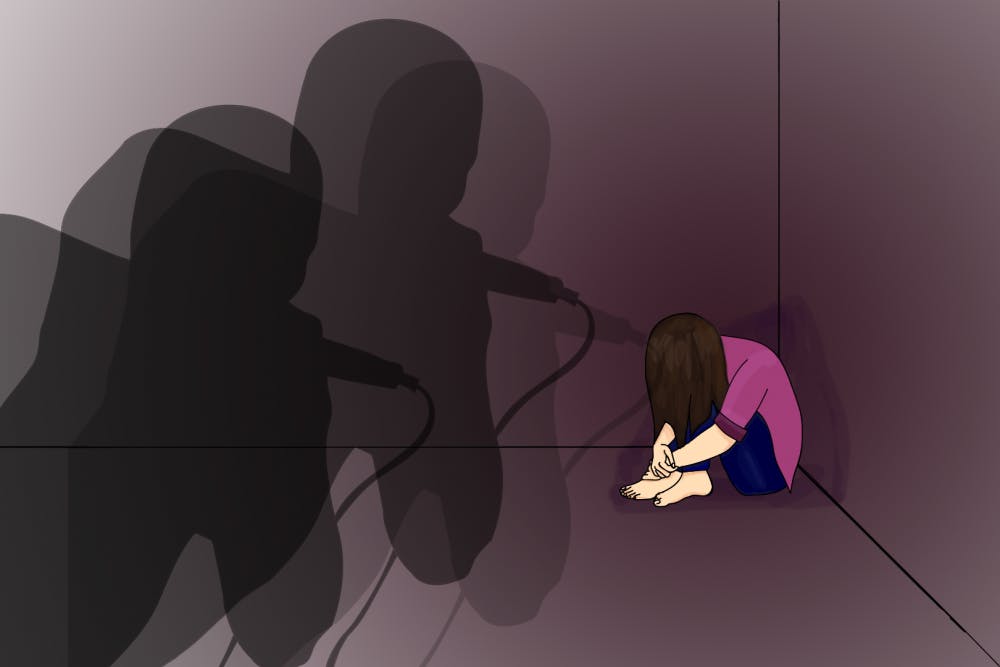Your fave song may be problematic — popular music often degrades and abuses women. This is a significant issue, as it shapes how college students view and treat the women in their lives. It is a conversation that needs to be had.
While there are initiatives actively seeking equal pay for women in this industry, we are not seeing a significant push for the industry to produce music that is respectful to women as a whole.
“If we really started analyzing lyrics more deeply, I think people would be disturbed by some of the things that sound very catchy when they’re put to music,” Alesha Durfee, associate professor of women and gender studies, said. “It’s really fascinating to me that we don’t focus on it in country western music. We don’t focus on it in rock music. We associate it almost exclusively with rap and hip-hop.”
There are also many instances where women themselves perpetuate the violence. They are internalizing and reinforcing the hurtful ideals of the industry.
“Taylor Swift engages in a very glamorous form of domestic violence where she is the perpetuator, and it is very sexualized,” Durfee said.
Popular artists like Drake, and even bands like Guns N’ Roses, all degrade women by referring to them in derogatory ways, but we don’t think twice about it because we are so accustomed to it. This is where the issue lies.
It is crucial to not let ourselves get accustomed to it because it has a negative impact on how young adults view women.
“The cumulative affect over time for young people being exposed to these images ... (we) develop ideas about what is acceptable," Mako Ward, instructor of women and gender studies said. "Young girls develop a perspective of 'I’m only worth what my body is desired by the other sex.' For boys, they develop attitudes around the accessibility of women’s bodies."
The more young boys expect girls to look and act a certain way because of the images painted through these songs and their music videos, the more young girls develop insecurities.
“I don’t necessarily think the music industry is intentionally desiring to degrade women … The challenge is that sexuality has become a commodity.” Ward said. “Unfortunately … (what) sells the most is a version of music that is invested in promoting a machismo that is all about the celebration of hypermasculinity at the expense of the objectification of women.”
We have taken this negative connotation of “sex sells," normalized it, and now we don’t hear anything wrong when we choose to consume these songs.
“Part of the intervention that people can make is not around not supporting particular artists, but supporting, with their money, the artists that … are inspiring, uplifting, empowering, and don't contribute to the sexualization of women,” Ward said.
With the awareness initiatives about sexual assault on campus, it is important to teach people that women are more than just their bodies.
Students need to start talking about how the music industry is influencing us and how we view women and their sexuality. This can ultimately translate to our relationships, friendships and overall mental health.
“We need to start having those conversations," Durfee said. "We need to have them in our classes — we need to have them in our dorm environments,”
We have access to hundreds of websites and social media platforms where we can use our voice to hold society accountable for its wrongdoings, particularly in music.
We don’t have to stop listening to these songs altogether. However, we do have to acknowledge that we have become so used to songs that degrade women that we don’t think twice about what we are hearing and whether it's damaging.
By acknowledging this issue, we can start to teach ourselves that this is not normal or okay. This is where change can begin. By having these important conversations, we can create healthier relationships and views of women.
Reach the columnist at trwska96@gmail.com or follow on Twitter @trwscuit.
Like The State Press on Facebook and follow @statepress on Twitter.
Editor’s note: The opinions presented in this column are the author’s and do not imply any endorsement from The State Press or its editors.
Want to join the conversation? Send an email to opiniondesk.statepress@gmail.com. Keep letters under 500 words and be sure to include your university affiliation. Anonymity will not be granted.




